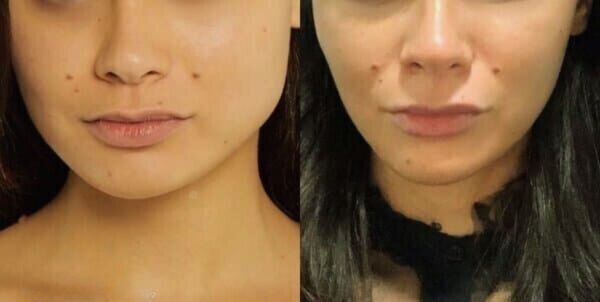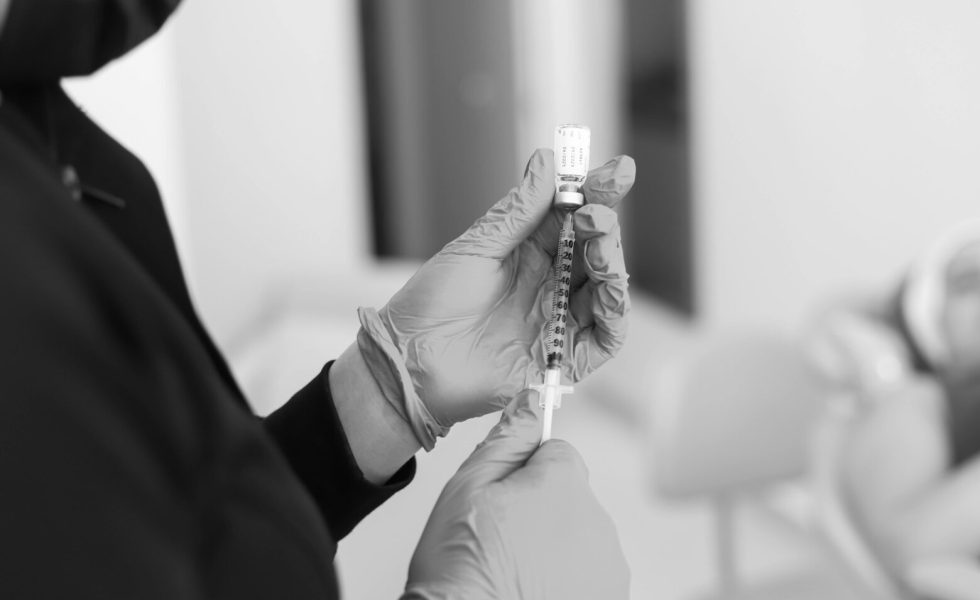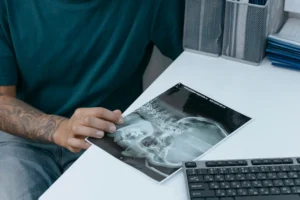Suffering from jaw pain, teeth grinding, or tension headaches? At Dr. Majid Shah Aesthetics, we offer Botox for TMJ — a minimally invasive, medically backed solution that relaxes overactive jaw muscles and provides relief within days.
📞 Call 0121 514 2385 or Request Your Consultation Today
What is Botox for TMJ
Botox treatment for TMJ helps by relaxing overactive jaw muscles, which reduces tension and relieves pain. It’s a non-surgical option that works by blocking nerve signals responsible for muscle contractions — helping patients regain comfort and function.
Key Benefits of Botox Treatment for TMJ
- Relieves jaw pain, headaches, and teeth grinding
- Minimally invasive with no downtime
- Results typically last 3–6 months
- Targets key jaw muscles like the masseter and temporalis
Is Botox Right for Your TMJ?
TMJ disorders are caused by factors like:
Bruxism (teeth grinding)
Jaw misalignment
Stress-related clenching
Arthritis or trauma
Symptoms include:
Jaw pain, Jaw popping/clicking, headaches, difficulty chewing, and nighttime grinding.
How Does TMJ Botox Work to Help Relax the Muscles in Your Jaw
Botox is an effective treatment for TMJ disorders due to its ability to target the root cause of muscle overactivity and tension.
Here’s how Botox may help with pain relief:
Targeted Muscle Relaxation
Botox injections are administered directly into overactive jaw muscles, such as the masseter and temporalis. These muscles are responsible for jaw movement and can become tense or overworked due to TMJ disorders. Botox relaxes them by:
- Blocking Neurotransmitter Signals: Prevents the release of chemicals that cause muscle contractions.
- Reducing Tension: Relieves tightness in the jaw and surrounding areas.
Symptom Alleviation
By relaxing the jaw muscles, the use of Botox for TMJ treatment effectively reduces symptoms such as:
- Persistent jaw pain.
- Clicking or popping sounds during jaw movement.
- TMJ-related headaches.
Gradual Improvement
While results are not instantaneous, many patients begin noticing symptom relief within a few days to a week after getting Botox injections. Improvements typically continue to develop over the following weeks as muscle relaxation becomes more pronounced.
This targeted and minimally invasive approach allows patients to manage their TMJ symptoms effectively without requiring surgery or extensive recovery time.
TMJ Botox Before & After

What Are the Alternatives to Botox for TMJ?
While Botox is an effective non-invasive treatment for many TMJ disorder symptoms, it’s not the only safe and effective treatment option available. Depending on the severity of your condition and personal preferences, alternative treatments may provide relief:
- Mouthguards and Splints
Custom-made dental appliances can reduce teeth grinding (bruxism) and relieve jaw strain.
Worn at night, they help protect teeth and minimize joint stress. - Physical Therapy
Guided exercises can strengthen jaw muscles, improve mobility, and reduce pain.
Techniques may include stretches, massages, and posture adjustments to relieve pressure on the jaw joint. - Medications
Anti-inflammatory drugs like ibuprofen can ease swelling and pain.
Muscle relaxants may help reduce tension in the jaw and surrounding muscles. - Stress Management Techniques
Relaxation methods, such as meditation, yoga, or counseling, can address the stress that often exacerbates TMJ symptoms.
Learning to manage stress effectively can reduce clenching and grinding. - Surgical Interventions
In severe cases, surgery may be considered to correct structural issues or repair damaged joints.
This option is typically reserved for when other treatments have failed.
Each alternative has its benefits and limitations, and some treatments may work best when combined with others.
Who Should Avoid Botox for TMJ
Despite the broad applicability of Botox for TMJ disorders, specific individuals must approach this TMJ treatment with caution. Considering this minimally invasive procedure, you should be particularly mindful if you belong to a particular group.
- Pregnant or Breastfeeding Women: Consult your healthcare provider, as the effects on the baby aren’t thoroughly studied.
- Patients with Neuromuscular Disorders: Increased risk of severe side effects.
- Interaction with Medications: Certain drugs may alter Botox’s effectiveness or increase complications.
- Significance of Consulting a Healthcare Provider: It is crucial to assess your suitability and discuss potential risks.
- Minimally Invasive Procedure: Generally safe, but specific conditions may increase your risk profile.
Always prioritize safety and professional guidance when considering non-surgical treatments like Botox.
TMJ Treatment FAQs
If you have questions about using Botox for TMJ, it’s vital to have clear, straightforward answers. Here are some common FAQ’s.
What happens if I stop Botox treatments for TMJ?
When you stop Botox treatments, your jaw muscles gradually regain their previous activity levels, and TMJ symptoms like tension or pain may return. Regular treatments are recommended to maintain relief.
How many sessions of Botox are needed to treat TMJ?
Most patients require ongoing Botox treatments every 3-6 months to help relieve any pain or soreness. As a practitioner I will create a personalized plan based on the severity of your symptoms.
Can Botox for TMJ help with headaches or migraines?
Yes, Botox can alleviate TMJ-related headaches or migraines by reducing muscle tension in the jaw and surrounding areas. This dual benefit is often a significant advantage of the treatment.
Is there any downtime after Botox for TMJ?
Botox for TMJ requires minimal to no downtime. Most patients can resume normal activities immediately after treatment, though strenuous activity should be avoided for 24 hours.
Does Botox for TMJ work for everyone?
While Botox is highly effective for many, individual results may vary. It is most beneficial for patients with jaw tension, teeth grinding, or mild to moderate TMJ disorders. We can help determine if it’s the right treatment for you.
Schedule a Consultation
Looking to find relief from TMJ? Request a consultation via our contact form or call 0121 514 2385 with Dr. Majid Shah Aesthetics in Birmingham, a premier skin clinic for help.
With years of experience and an excellent reputation, I will work with you to achieve your desired result.





